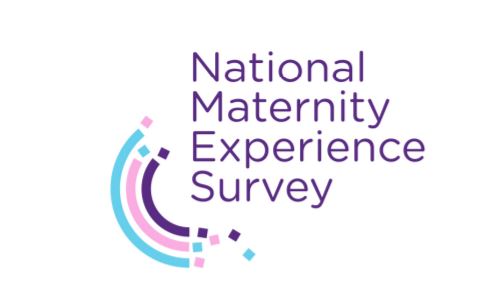
A HIQA survey has revealed significant geographical disparity when it comes to accessing postnatal GP care for women.
A report on maternity care provided in the community published this morning shows while most women in Ireland attend their two week postnatal check-ups, the numbers were notably lower for women living in counties in the north-west of Ireland.
Nationally, 84.7% of women attended their 2-week post-natal check-up with their GP. However, the numbers were significantly lower for women living in Donegal at 44.4%, Leitrim at 46.3% and Sligo at 47.1%. Of those who did not attend, most said it was because they did not know about it.
HIQA’s Director of Health Information and Standards Rachel Flynn says the correlation between geographical location and the provision of post-natal services is a matter of concern, and it is important that women in Donegal, Leitrim and Sligo are afforded the same opportunities, and have the same expectation of care provision those in Ireland’s urban centres.
She concludes it is clear that there is still work to be done to ensure women and babies across Ireland have access to the care and support they need.
The full report can be accessed HERE
****************************
HIQA release in full –
National survey reveals geographical disparity when it comes to accessing postnatal GP care for women.
12 April 2021: A report on maternity care provided in the community, as part of the National Maternity Experience Survey 2020, shows that for almost 90% of women who responded, their GP was the first point of contact once they became pregnant.
Most respondents were positive about the care and support they received, saying they were treated with respect and dignity, were spoken to in a clear, understandable way and had confidence and trust in their healthcare professional.
However, it also revealed that some women felt that more information was needed on changes they would experience to their mental and physical health, as well as their nutritional needs during pregnancy.
The survey also identified significant variation in attendance at the 2-week postnatal check-up. Most women attend this check-up but the numbers were notably lower for women living in counties in the north-west of Ireland.
Respondents also provided detailed information on their experiences with their GPs, practice nurses and midwives. These comments identified the caring and helpful attitudes of GPs, but also highlighted the requirement for more personalised care, particularly in the postnatal period.
Speaking about the report, HIQA’s Director of Health Information and Standards Rachel Flynn said:
“Care begins in the community and to that end, it is crucial that pregnant women can trust and have confidence in the treatment and advice they receive from their GP or family doctor.
It is hugely encouraging to see that a majority of women have reported positive experiences as they prepare for one of life’s major milestones.
More concerning however, is the correlation between geographical location and the provision of post-natal services. It is important that women in Donegal, Leitrim and Sligo are afforded the same opportunities and can have the same expectation of care provision those in Ireland’s urban centres.
It is clear that there is still work to be done to ensure women and babies across Ireland have access to the care and support they need.”
Most women said that their GP, practice nurse or midwife answered their postnatal questions in a way they could understand. However, it was evident that a significant number felt that insufficient time was spent discussing their physical and mental health at the 6-week postnatal check-up.
Ms. Flynn said: “Pregnancy is a demanding experience, both physically and mentally. It is concerning that a significant number of women who took part in this survey felt that they did not receive enough information about potential changes to their mental health during pregnancy.
Greater care must be taken by medical practitioners to make sure that women are made aware of the mental health supports that are available to them while expecting.”
The report on the maternity care provided in the community by general practitioners, practice nurses and midwives, as part of the 2020 National Maternity Experience Survey, can be found at www.yourexperience.ie.
- The National Maternity Experience Survey is part of the National Care Experience Programme, a joint initiative by the Health Information and Quality Authority (HIQA), the HSE and the Department of Health.
- The survey asked over 6,000 new mums about their maternity experience in February and March 2020.
- This report focuses on women’s experiences of maternity care provided outside of hospital by general practitioners (GPs), practice nurses and midwives as part of the National Maternity Experience Survey.
- For 87.4% of the women who responded, their GP was the first healthcare professional they saw when they thought they were pregnant, with 3.7% receiving care from a midwife first and 8.9% answering ‘other.’
- Women who saw a midwife first were slightly more likely to say they were offered a choice of care than those who saw GP first or ‘other.’
- Every women who is pregnant and ordinarily resident in Ireland is entitled to maternity care under the Maternity and Infant Scheme. This scheme allows for two visits to the general practitioner at 2 weeks and 6 weeks after childbirth.
- Nationally, 84.7% of women attended their 2-week post-natal check-up with their GP; however, the numbers were significantly lower for women living in Donegal (44.4%), Leitrim (46.3%) and Sligo (47.1%). Of those who did not attend, most said it was because they did not know about it.
- When asked if sufficient time was spent discussing their physical health at the 6-week check-up, Monaghan had the highest proportion of women who answered ‘yes, definitely’ with 64.1%, while Longford had the lowest with 35.9%. Nationally, 1,458 women (45.5%) answered ‘yes, definitely’.
- When asked whether sufficient time was spent discussing mental health at the 6-week check-up, Monaghan again had the highest proportion of women who answered ‘yes definitely’ with 51.3%, Clare had the lowest with 28.6%. Nationally, 1,251 women (39.1%) answered ‘yes, definitely’.





